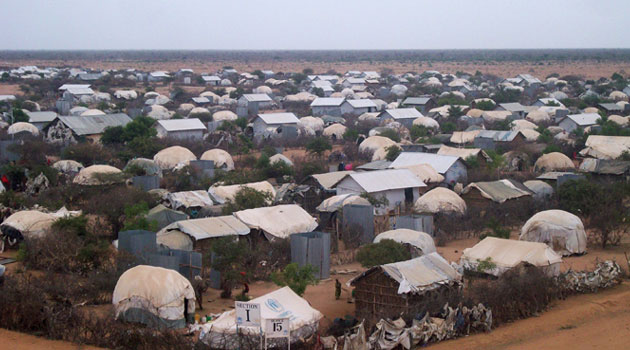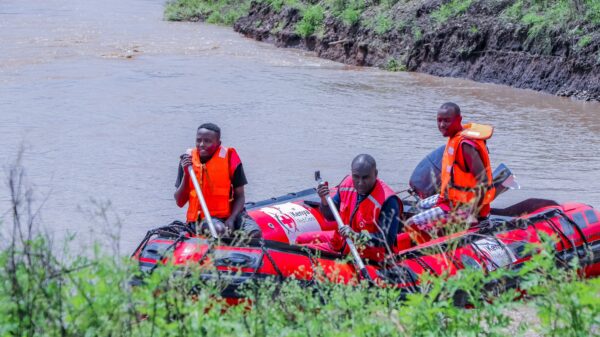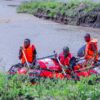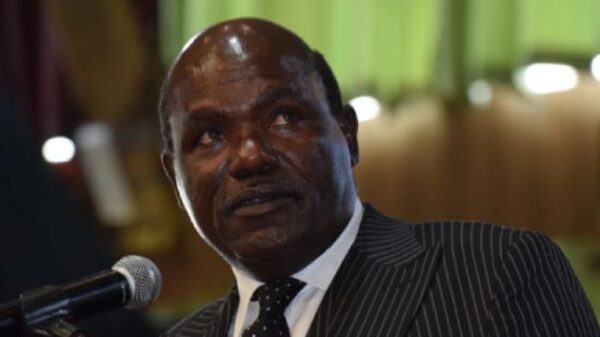This year, the world marks World Refugee Day in the midst of the COVID-19 pandemic. Since the World Health Organisation, WHO, declared COVID-19 a global health emergency, it has had an unprecedented socio-economic impact on the global community. It’s a widely recognized fact that the impact is heavier on those most vulnerable and on the fringes of society including those that are engaged in the informal economy, migrants, refugees, women and the youth according to the recent ILO COVID-19 Monitor (4th edition).
The theme for this year’s World Refugee Day – “Everyone can make a difference; everyone counts” – is in line with the agenda 2030 of leaving no one behind. According to the UN Refugee Agency, the global refugee population stands at 25.9 Million , almost half of them are under the age of 18, the rallying call could therefore not have come at a better time.
Developing countries host the highest numbers of refugees, including countries in the East and in the Horn of Africa. Many of these refugees have been away from their homes for protracted periods, on average 5 years according to the World Bank but could also be way longer for others.
For communities hosting refugees, the often-large influx of refugees poses a couple of challenges while presenting opportunities as well.
The humanitarian response to displacement for the longest time created parallel systems of assistance in Eastern Africa. It was no surprise to find refugees receiving food donations in a time of famine while host communities suffering the same fate were not reached at all or not at the same scale by such interventions. Programs in training and skills development were availed to refugees without a clear integration into the local labour market realities or the same opportunity availed to host communities. The burden of hosting refugees has been disproportionate for developing countries and even heavier for the most immediate hosting communities.
It is with this recognition that the United Nations General Assembly in 2016 adopted the landmark New York Declaration on refugees and Migrants. This was followed by the adoption of the Global compact on refugees (GCR) implemented through the Comprehensive Refugee Response Framework (CRRF) that recognizes the need for increased international responsibility sharing, easing pressure on host countries and communities while working towards self-reliance of refugees while perusing peace in countries of origin that would enable a return of those displaced.
The International Labour Organisation, ILO together with its partners (namely UNHCR, UNICEF, IFC and the World Bank), financially supported by the Kingdom of the Netherlands, have joined forces to support the government of Kenya’s efforts towards the realization of the Comprehensive Refugee Response Framework, with the spirit and letter of the Global Compact on Refugees.
The new approach to displacement, calls for increased long term funding to addresses long standing development challenges, including the integration of labour for refugees and their hosts into the local economies. At the same time, local economic development has to be stimulated for opportunities to become available for all. This would entail policy responses promoting economic growth and employment, including delivery of community infrastructure and other assets through labour based approaches that can create jobs for many over a period of time. It would also mean adopting integrated market-based approaches in viable sectors that have the potential to create more and decent jobs for refugees and communities that host them.
Refugees leave home with different experiences, skills and knowledge but unfortunately, many of them are often not able to utilize these in their host countries as asylum-seekers. Recognition of prior learning, such as informal skills acquired before and even during exile, remains low, thus hindering refugees’ meaningful engagement in the local labour market. This, in essence, denies them the opportunity to contribute and make a difference in their hosting countries. From a labour-market perspective, they do not event count.
Ensuring that mechanisms for skills recognition and up-skilling where need be are available for refugees, accompanied by access to employment services, both public and private that link them to existing opportunities in the labour market, would greatly enhance their participation and contribution to the local labour market.
In some cases, the differentiated assistance between refugees and host communities has led to tensions. Whether perceived or real, the feeling that refugees “have it better” cannot be ignored by national and local government, humanitarian, development and peace actors. That is the reason for being of ILO Recommendation 205 on Employment and Decent Work for Peace and Resilience Recommendation (2017) and of the Guiding principles on the access of refugees and other forcibly displaced persons to the labour market (2016) that outline key considerations fostering social cohesion while engaging both communities in the labour market.
Kenya’s long standing history of hospitality, especially towards those made most vulnerable by displacement will ensure that shared prosperity can be created for both refugees and the communities that host them. In line with the theme for this year’s World Refugee Day, “everyone can make a difference, everyone counts”.
Caroline Njuki is the Chief Technical Advisor on Inclusive Jobs and education for host communities, refugees and other forcibly displaced persons at ILO Kenya
























































